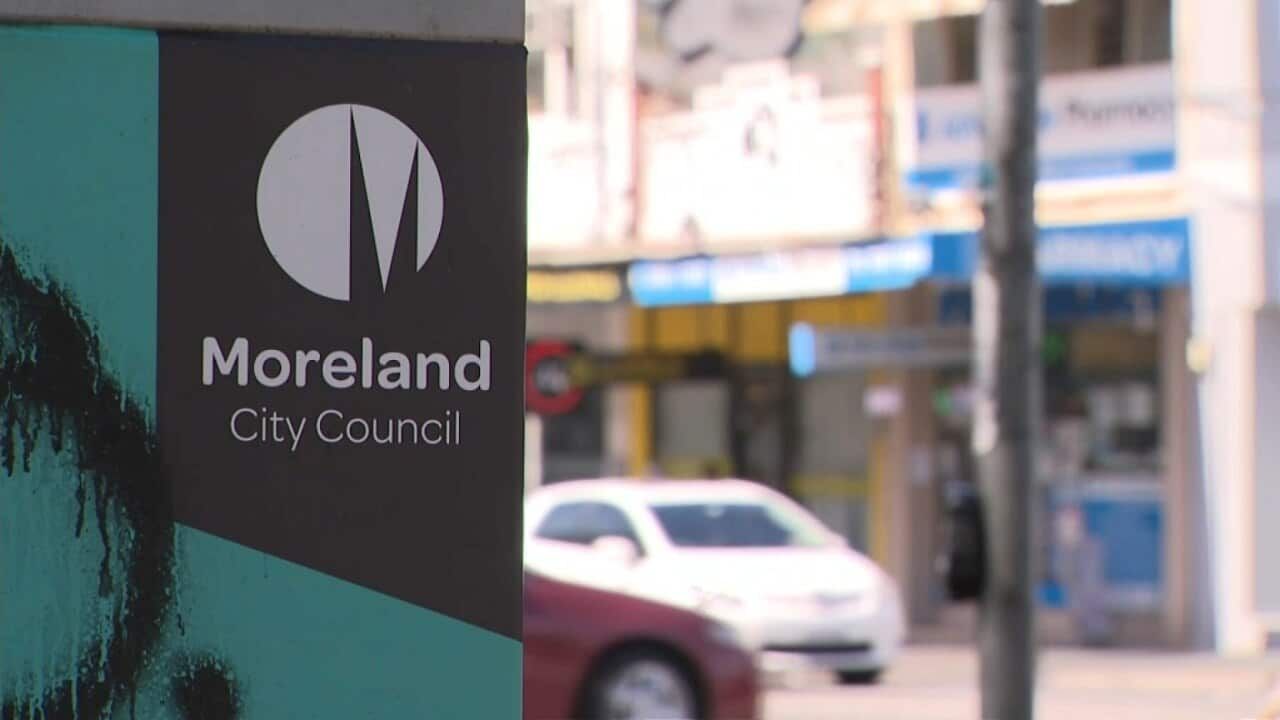Merinda Hansen has been teaching Noongar for 20 years.
She says she’s never before seen the current level of interest in sharing and teaching of the original language of the South West, of Western Australia, that exists today.
The demand is coming from schools, families and in Ms Hansen’s case, even the arts industry.
Also a Chairperson of Langford Aboriginal Association, Ms Hansen recently worked on a project involving Melbourne band, King Gizzard & the Lizard Wizard’s critically acclaimed Butterfly 3000 album.

King Gizzard and the Wizard Lizard fan Tyrone Hansen with his mother Merinda Hansen who he enlisted to work on the Noongar language translation of the album. Source: Supplied
Translating the tracks
Working with family friend Lois Spehn-Jackson, the pair translated all the wording on the cover, including lyrics to all 10 songs to Noongar.
Her son Tyrone Hansen, a Noongar man and huge fan of the band was the person who suggested they include a Noongar version, after they asked for fans to suggest what languages they would like to see the vinyl record covers released in.
In a statement to NITV, King Gizzard & the Lizard Wizard said they were excited they could share the Noongar language in this unique way and were fortunate Tyrone reached out to them.
“He also sought permission from Noongar Elders, something that was the upmost importance to the both of us,” the band said.
Ms Hansen worked together with Noongar Elder Lois Spehn-Jackson who was able to give additional guidance around the usage of different words.
“We just sat there with dictionaries and books and then Lois would look at her old record papers that she had with the old people, the Elders and words that they would use,” she said.
“It's not an easy thing to do. Because we don't have words for everything, you've got to really sit back and think, oh, what else can that mean? You know, how else can we word it?”
The band has made 500 copies of the Noongar version of the album titled ‘Bindi Bindi 3000’ available for purchase, with all funds from sales going to the Langford Aboriginal Association.

Merinda Hansen and Lois Spehn-Jackson working on the Noongar translations for the album. Source: Supplied
Language lost
Ms Hansen said she is delighted to see Noongar words becoming more commonly used on signage in and around Perth and that more people are starting to use Noongar words.
“I’ve noticed it quite a bit, I took the kids to the zoo and they've got animal names on the signs. Oh, my gosh, it's so good to see all around the place,” she said.
Ms Hansen’s excitement for the future of the Noongar language is tinged with a little sadness over the loss of connection to language in the past.
“The sad thing I find is that I teach older people, Elders. Like my dad was part of the stolen generation, so I didn't grow up learning it,” she said.
“I learned it through Elders before they passed away. As much as I love it, I also feel a bit of sadness, because they should be the ones teaching me.”
She said incorporating Aboriginal languages into everyday life connects people to their culture and also brings recognition to cultures.
“The kids I teach at school told me about the signs that they see if they go to Kings Park or wherever they've been and many of them are from multicultural backgrounds,” she said.
“They get an understanding of Aboriginal culture by seeing this around and they start to realise, oh, you know, this is their history and they start asking questions about things."

Noongar language sound chart included in a Noongar language course. Source: Aaron Fernandes/SBS News
Noongar learning on the rise
There has been a significant increase in the number of students learning Noongar in WA schools with more than 5000 students now learning the language, compared to more than 2,000 in 2020.
It is one of 24 Aboriginal languages being taught in WA public schools.
Increasing interest has meant the Education Department has had to expand its Aboriginal Languages Teacher Training program, which trains Aboriginal and Islander Education Officers to teach Aboriginal languages in schools.
Noongar is also being introduced to WA babies thanks to the release of a dual language version of a book that it given to parents in the state when they have a baby.
The book ‘Baby Ways’ has been distributed to new mums and dads for the past 18 years in a bid to encourage parents to read to their children from a young age.
The first copies of ‘Maawit Mart/Baby Ways’ were handed to Aboriginal parents living on Noongar land last month.



